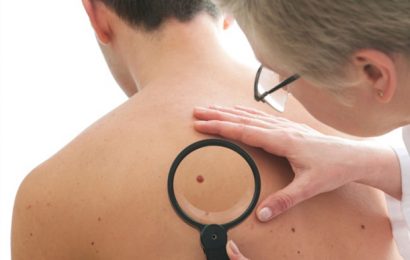While it’s previously been reported that cases of COVID-19, the disease caused by the novel coronavirus, presents more mildly in children, doctors are examining a potential illness that may have links to the virus. Late Monday, Health officials announced that there have been 15 documented cases of children in New York City hospitals with a “multi-system inflammatory syndrome” that they believe might have a relation to COVID-19.
Demetre C. Daskalakis, MD, MPH Deputy Commissioner Division of Disease Control New York City Health Department writes in a bulletin released Monday that the illness is “characterized by persistent fever and features of Kawasaki disease and/or toxic shock syndrome [with] abdominal symptoms common.” While the reported features have varied depending on the systems affected, patients with these symptoms have been admitted to pediatric intensive care units (PICU) in need of “cardiac and/or respiratory support.”
“The NYC Health Department contacted PICUs in NYC during April 29-May 3, 2020 and identified 15 patients aged 2-15 years who had been hospitalized from April 17- May 1, 2020 with illnesses compatible with this syndrome (i.e., typical Kawasaki disease, incomplete Kawasaki disease, and/or shock). All patients had subjective or measured fever and more than half reported rash, abdominal pain, vomiting, or diarrhea,” Daskalakis writes. “Respiratory symptoms were reported in less than half of these patients. Polymerase chain reaction (PCR) testing for SARS-CoV-2 has been positive (4), negative (10), and initially indeterminate and then negative (1). Six patients with negative testing by PCR were positive by serology. More than half of the reported patients required blood pressure support and five required mechanical ventilation. No fatalities have been reported among these cases.”
In the United Kingdom where cases have also been reported, officials say that while “there still been very few cases of critically unwell children with COVID-19 admitted to [PICUs]” and they have been monitoring for cases with these symptoms. “If you are a parent, please be assured that serious illness as a result of COVID-19 still appears to be a very rare event in children,” they note.
What are the symptoms to look out for?
The symptoms of Kawasaki disease (also called mucocutaneous lymph node syndrome) include high fevers that last for five or more days, rashes on the torso or groin, bloodshot eyes, red swollen lips, red hands and soles of feet and swelling in the lymph nodes, hands and feet in the early stages. Later stage symptoms can include abdominal pain, vomiting, diarrhea, peeling skin on the hands and feet, an enlarged gallbladder and temporary hearing loss. Symptoms of toxic shock syndrome (TSS) include a sudden high fever, low blood pressure, a rash resembling sunburn on palms and soles of feet, confusion, headaches and muscle aches.
Health Department officials say that if the syndrome is suspected, pediatricians should immediately connect patients with specialists in pediatric infection disease, rheumatology or critical care as acting quickly and getting an early diagnosis and treatment is necessary to prevent organ damage and longer-term complications. Pediatricians are advised to report cases where an individual who is under 21 years old is experiencing a persistent fever for four days or more and have presentation (whether full of incomplete) of Kawasaki disease or toxic shock syndrome symptoms — whether they have tested positive for COVID-19 or not.
In a statement to the New York Times New York City’s health commissioner, Oxiris Barbot said “even though the relationship of this syndrome to Covid-19 is not yet defined, and not all of these cases have tested positive for Covid-19 by either DNA test or serology, the clinical nature of this virus is such that we are asking all providers to contact us immediately if they see patients who meet the criteria we’ve outlined.”
SheKnows will continue to update this story as more develops.
For peace of mind in a scary situation, having an at-home emergency kit for illness can be helpful for your whole family. Here’s our guide to an at-home first-aid kit for quarantine:





Source: Read Full Article


